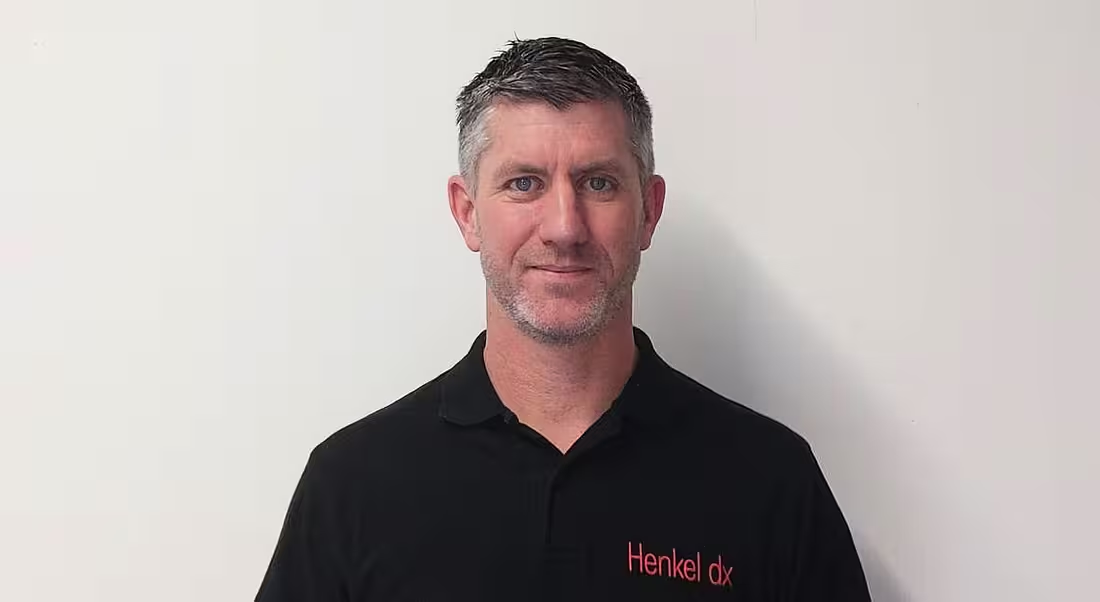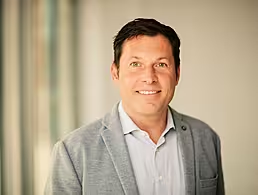Henkel’s Dermot Hurley gives insight into the job of a cybersecurity manager and explains why roles in his field demand adaptable, open personalities.
![]()
Dermot Hurley is Henkel’s service deliver manager for Ireland, the UK and the Nordics. He has risen quickly in the organisation, having joined in 2015 when Henkel acquired Spotless Group.
Hurley started his career as a field service engineer at a time when cybersecurity was not a concern for many people. However, as his career progressed so did the proliferation of online viruses. He soon found himself “deploying end-point malware protection solutions and perimeter firewalls”.
He moved into IT management roles in the SME sector. He recalls that he always had to “give due consideration to cybersecurity topics” during this time.
Hurley has more than 20 years of experience in IT and remains passionate about his work.
“I love the continuous evolution we see in IT and enjoy nothing more than supporting the business in navigating their way in implementing these new solutions.”
‘A career in cybersecurity means a lifetime of learning and adapting’
What were the biggest surprises or challenges you encountered on your career path in cybersecurity and how did you deal with them?
The biggest challenge is getting people to think about cybersecurity at the beginning of the design process and not at the end.
To address this, we engage with the business as early as possible in the process and support them in choosing solutions which are developed by partners who place security at the heart of the solutions they design.
In the past, solutions were deployed in the internal data centre where we could manage and secure the platform. Now, many of the solutions are hosted in the Cloud and deployed as software-as-a-service (SaaS).
While this brings many advantages such as faster deployment, it also removes our direct control over the environment, so we need to ensure that our provider’s environment aligns with our own expectations and that they implement standards such as ISO 27001 (the leading international standard for information security), and conduct regular penetration testing of not only the infrastructure but also on their applications.
‘The biggest challenge is getting people to think about cybersecurity at the beginning of the design process and not at the end’
Was there any one person who was particularly influential as your career developed?
While studying at the University of Limerick, I did my work placement with Stryker in Cork. I was fortunate enough to work under the guidance of Walter Switzer, the MIS manager for the site at the time. Walter exposed me to every aspect of the IT infrastructure and systems, and instilled in me the importance of attention to detail.
What do you enjoy most about your job?
What I really enjoy about working in Henkel is the flexibility to explore topics outside of my core responsibilities. We all have our day-to-day responsibilities but having the options to explore other topics helps expand your knowledge. It allows me to continually evolve and better enables me to adapt to the ever-changing landscape that is cybersecurity.
What aspects of your personality do you feel make you suited to cybersecurity?
I have an open and friendly personality which enables me to build relationships fast. This along with my ability to simplify complex cybersecurity concepts and break them down into meaningful easy-to-understand steps allows for the quick buy-in of my users.
What can people expect from career progression in the cybersecurity industry?
A career in cybersecurity means a lifetime of learning and adapting. Henkel places a huge emphasis on continuous learning. We have access to a wealth of training material and courses via internal platforms, LinkedIn Learning and Coursera.
What advice would you give to those considering a career in cybersecurity, or just starting out in one?
Cybersecurity starts and ends with people. It doesn’t matter what area of cybersecurity you work in – when trying to implement a cybersecurity solution, if you don’t keep the users informed, educated and involved, it won’t work. So, take the time to engage and listen to users. They are critical to your success.
10 things you need to know direct to your inbox every weekday. Sign up for the Daily Brief, Silicon Republic’s digest of essential sci-tech news.




